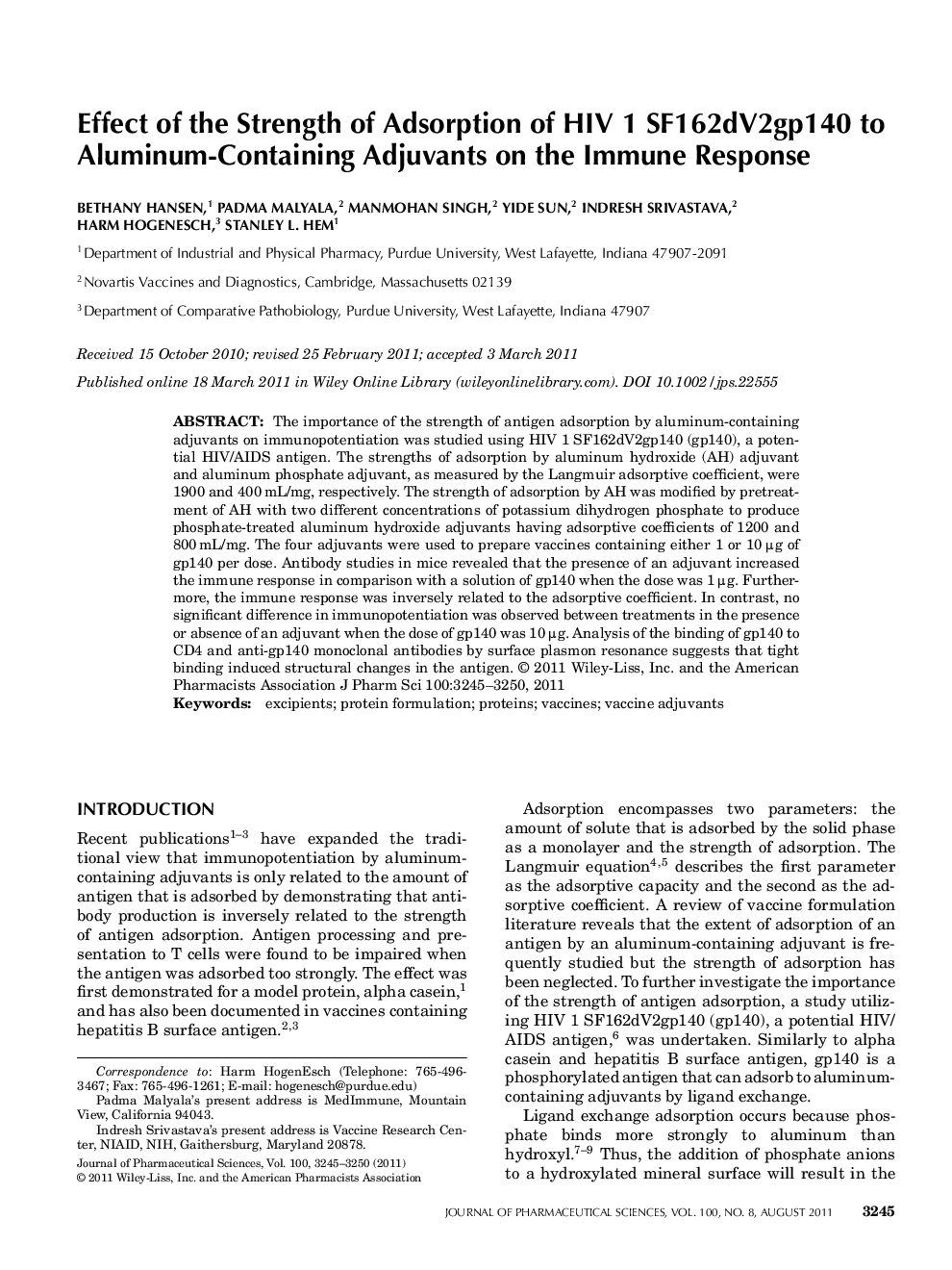| Article ID | Journal | Published Year | Pages | File Type |
|---|---|---|---|---|
| 2486341 | Journal of Pharmaceutical Sciences | 2011 | 6 Pages |
Abstract
The importance of the strength of antigen adsorption by aluminumâcontaining adjuvants on immunopotentiation was studied using HIV 1 SF162dV2gp140 (gp140), a potential HIV/AIDS antigen. The strengths of adsorption by aluminum hydroxide (AH) adjuvant and aluminum phosphate adjuvant, as measured by the Langmuir adsorptive coefficient, were 1900 and 400 mL/mg, respectively. The strength of adsorption by AH was modified by pretreatment of AH with two different concentrations of potassium dihydrogen phosphate to produce phosphateâtreated aluminum hydroxide adjuvants having adsorptive coefficients of 1200 and 800 mL/mg. The four adjuvants were used to prepare vaccines containing either 1 or 10 μg of gp140 per dose. Antibody studies in mice revealed that the presence of an adjuvant increased the immune response in comparison with a solution of gp140 when the dose was 1 μg. Furthermore, the immune response was inversely related to the adsorptive coefficient. In contrast, no significant difference in immunopotentiation was observed between treatments in the presence or absence of an adjuvant when the dose of gp140 was 10 μg. Analysis of the binding of gp140 to CD4 and antiâgp140 monoclonal antibodies by surface plasmon resonance suggests that tight binding induced structural changes in the antigen. © 2011 WileyâLiss, Inc. and the American Pharmacists Association J Pharm Sci 100:3245-3250, 2011
Related Topics
Health Sciences
Pharmacology, Toxicology and Pharmaceutical Science
Drug Discovery
Authors
Bethany Hansen, Padma Malyala, Manmohan Singh, Yide Sun, Indresh Srivastava, Harm Hogenesch, Stanley L. Hem,
